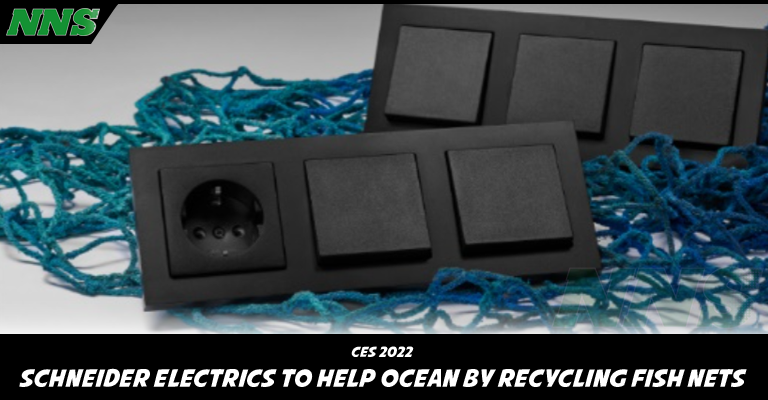It’s nice to see a company genuinely invested in creating a better tomorrow. It’s easy to be cynical in today’s world when it comes to any corporation, large or small; as such, it’s always pleasantly surprising when a company comes up with genuine innovation that works not only on an environmental level, but is something that people actually want.
Merten by Schneider Electric isn’t exactly a new kid on the block. They’ve been operating since 1906, when the Merten brothers established their company in Germany. Between then and now, they’ve been expanding their range, and their reach, and at this years CES they announced a brand new source for the plastics for things like light switches and sockets. In fact, I’m not the only person who thinks this is a wonderful plan as the Merten Ocean Plastic Switch won the CES 2022 Award in the category of Sustainability!
What is that source? Glad you asked.
Lost, destroyed and otherwise, free-floating fishing equipment makes up about 10% of all plastic waste in the ocean. For the 10% that it makes up the results of it being left to roam free are disastrous beyond what that figure might suggest. Because of their size and intended purpose, they can kill hundreds, if not thousands, of animals over their lifetime as waste plastic in the sea. The forward-thinking team over at Merton by Schneider Electric decided that, instead of being silent walls of death, they could become useful, sustainably sourced, fixtures in homes. Things that last well beyond the short lifespan of your average single-use plastic bottle – light switches, sockets and frames for both tend to stay locked in place for years, if not decades, keeping that plastic in one, harmless space.
I was lucky enough to chat with Christy Roth from Schneider via Zoom after CES to get a little additional information on these products – It was a wonderful experience and I’m very grateful to the team at Schneider for their time.
The plastic is being taken from the Indian Ocean and the Arabian Sea. Schneider, in partnership with DSM, works with communities in India to collect and bring in these damaged and abandoned nets. There’s a process that transforms them into useable, clean plastic of a high enough grade that it can be used in homes, meeting all safety and technical requirements for safe installation in any home. The resulting plastic is meshed with glass fiber to ensure it’s durable and reusable and, the best part, this plastic has a carbon footprint 82% smaller than comparable, traditionally produced nylon products. Not only that, but the packaging for these items is 100% recyclable cardboard, single-color printing, and has no single-use plastic component.
See what I mean about working toward a better tomorrow? Any time trash can be taken out of the ocean is a win in our books over here at Nerd News Social and considering there are approximately 640,000 tons of loose nets adrift in the ocean? It’s nice to see someone doing something about it.


Facebook Comments